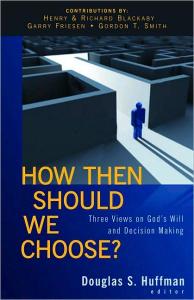Our Role in the Appointment of a Supreme Court Justice
May 30, 2009 Leave a comment
A few days ago, President Obama announced his first nominee for Supreme Court Justice. Among the various tools the President has used to get his message out is his website, where a 4-minute video announcement is posted here. I encourage you to view this video. I also encourage you to think carefully about what the President says at each stage in his announcement.
We live in a democracy. We have the opportunity and the responsibility to pay attention to major developments occurring in the executive, congressional, and judicial branches of our federal government. We should not simply elect a new President and our congressional representatives, and then forget about it. We have a duty to unceasing vigilance. The survival of democracy depends upon it.
The appointment of a new justice to the United States Supreme Court involves all three branches of our government, starting with the executive branch and the President’s nomination of the person he or she believes is best suited to the role. Congress then deliberates and votes up or down on the President’s nomination. If the nominee is approved, he or she steps into the vaunted role of applying the United States Constitution to the most sensitive legal cases of the age. If Congress does not approve the nominee, then the whole process begins again, with the President’s selection of a new nominee.
Now is a good time to consider why so much circumspection is required—required by the Constitution. When drafting the Constitution, the founders of our nation recognized that the degree of authority vested in justices of the Supreme Court is, well, supreme. What they say goes. Each appointment is a life appointment. It ends only when an individual justice decides to retire or that justice dies—whichever comes first. It is not unusual for justices to sit on the highest court for several decades. Except in very rare cases, a justice’s tenure on the Supreme Court is years and years longer than the maximum eight years any person can serve consecutively as President of the United States.
In addition, the decisions made by our Supreme Court justices outlive the justices themselves and stand indefinitely. Reversing the effects of a Supreme Court decision is far more complicated than appointing justices to the Court. It is probably the most unlikely action our federal government can make.
Finally, decisions made by the Supreme Court are compelling for all 50 of the United States.
You may wonder what difference ordinary citizens can make in the process of appointing justices to the Supreme Court. Here are a few key opportunities:
- Our responsibility begins with the election of a President.
- We then are free to follow the nomination and confirmation process. This is mostly a matter of staying informed. This takes some skill, since media outlets themselves have political agendas.
- Being informed is not enough. We must be thoughtful about what we hear. We must consider how a nominee is being pitched to “we, the People.” This requires skills of another kind, the skills associated with critical thinking.
- We are represented by elected officials in Congress. Our representatives are sensitive to our expressed will to be heard. Citizens hold some power, then, in influencing the approval process.
The single most significant aspect of our duty as citizens is vigilance and critical thinking.
This post reveals nothing about my response to President Obama’s nomination. I may add posts about that later. Meanwhile, I’m especially interested in the way the nominee is being presented to “the public.” That’s us. Except that we aren’t “the public.” We are the People. And We the People must do our part.
To that end, I’ll be adding posts that encourage critical reflection on aspects of the media coverage. My first post about this can be found here. It begins at the beginning with the President’s announcement.
Geivett’s Book Recommendations:
- For an excellent general reference guide to the Supreme Court, I recommend The Oxford Companion to the Supreme Court of the United States, edited by Kermit Hall. (Hall is also editor of The Oxford Guide to United States Supreme Court Decisions.)
- There are numerous guides to critical thinking. I especially recommend Being Logical: A Guide to Good Thinking, by D. Q. McInerny, and, for the more ambitious reader, Critical Thinking: A Concise Guide, by Tracy Bowell and Gary Kemp.






















 Twittering. Blogging. Facebooking. And yes, for those stuck in ancient technology, emailing. Every time you check your site, someone, somewhere has ended a post with “LOL.” Not me. I don’t LOL. Here’s why: it’s TC. I mean, it’s totally cliché. Or, if you prefer, it’s LTC—that is, “like, totally cliché.”
Twittering. Blogging. Facebooking. And yes, for those stuck in ancient technology, emailing. Every time you check your site, someone, somewhere has ended a post with “LOL.” Not me. I don’t LOL. Here’s why: it’s TC. I mean, it’s totally cliché. Or, if you prefer, it’s LTC—that is, “like, totally cliché.”



 Ever been to Venice? Ever get a hankering to be there, like, right now? Sometimes that happens to me. Today it happened to one of my daughters.
Ever been to Venice? Ever get a hankering to be there, like, right now? Sometimes that happens to me. Today it happened to one of my daughters.

 Vice President Jose Biden has profound advice for Americans faced with the prospect of a swine flu epidemic drifting across our borders from Mexico. Here’s what “say-it-ain’t-so-Joe” said in an interview with Matt Lauer on the Today Show:
Vice President Jose Biden has profound advice for Americans faced with the prospect of a swine flu epidemic drifting across our borders from Mexico. Here’s what “say-it-ain’t-so-Joe” said in an interview with Matt Lauer on the Today Show:
Recent Comments